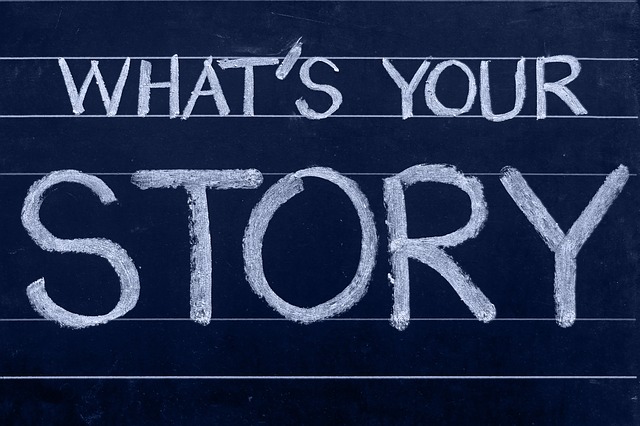Marketing Approaches: 6 Important Reasons to Tell Your Story
by Mark Jenney
As children, we were compelled by stories. We’d snuggle next to a parent or other family member with our eyes wide as saucers, listening to fairy tales and favorite childhood books. We’d be mesmerized by the action and wonder what narrative twists and turns would come next. While this ritual may have slipped away as we become more independent (and learned how to read books for ourselves), there is a universal truth that remains: the appeal of a good story never really dies.
Great stories bring us together for entertainment, camaraderie, and the teaching of important life lessons. Radio personality Paul Harvey always wanted to give us “the rest of the story,” our grade school teachers would tell us “the moral of the story,” and cable network AMC assured us via one of their taglines that “story matters here.” Plus, as the old saying goes, everyone has a story to tell.
Still, when it comes to building an audience for a company or product, so many marketers choose flash over substance. They try to create a better logo, construct a more engaging image, or put together a more peppy promotion. These things may look nice, but ultimately, there’s not much behind them. What’s missing? A story.
Telling a story, or turning your company or product into a narrative, offers numerous benefits to help you build your brand and garner the audience attention you’re after. Here are six important reasons why storytelling can boost your marketing efforts.
1. Stories establish a history. When did your company begin? How was your product developed? Many customers like to know that they’re a part of something established, whether it’s a bank or a chocolate chip cookie. Sure, there’s appeal in the new, but there’s tremendous power in legacy and nostalgia. By giving your audience a glimpse of your history, you make them feel like they’re involved in something bigger than themselves.
2. Stories get people involved. Consider the recent Coca Cola campaign that involves individual names on their bottles and cans. It may not seem like much at first, but ask yourself if you or a friend of yours has, in the past year, shared a photo of your (or a family member’s) moniker on a Coke. If you answered “yes,” then you’ve provided the international beverage manufacturer with the advertising they were after. You’ve created or seen a personalized story, and Coke played a big part; it’s exciting to see your name on a product like that! Moreover, you’ve shared that story with your contacts or had that story shared with you. Coke’s campaign is a tough act to follow, but still: how can your company or product play a leading role in stories created by others?
3. Stories show — and provide — inspiration. People love to hear rags to riches stories — the Horatio Alger tales of a million dollar idea and how a person’s life was transformed seemingly overnight. Not only does it help others cheer for you and your company as if you were the underdog, but it inspires others. After all, if you had a million dollar idea, why can’t they?
4. Stories show motivation. Your audience wants to know what keeps you going each day: how you challenge yourself, how you maintain creativity, and how you continue to be successful. You probably have several things that motivate you, and one of them is certainly the drive to improve the quality of life for your customers. Personal stories that reveal these things provide a human, compassionate, and authentic element to your company or product. And, when told correctly, they also make your customers feel like you care about their needs.
5. Stories are memorable. Great stories stick in the brain like super glue, and when customers remember a story, they remember the company or product that goes with it. Consider the story of Apple computers being developed in a garage, or the humble beginnings of McDonald’s as a place to get a quick, affordable meal, or as Amazon’s start as merely an online bookseller. Not only do these stories tie back to our first point about establishing a history, but they’re memorable anecdotes in the crowded realm of business start-ups.
6. Stories create a personal connection. We’re all human, but sometimes it can seem like we’re more different than alike. Stories help to change that. They promote understanding and make us realize that we all share similar hopes, dreams, and fears. They remind us that we all have a beating heart that wants the best for ourselves and others, and that we’re all part of this big human experience. When we hear a story, we feel connected to others — or to a company or product.
What’s Your Story?
A story may be great for entertainment purposes and for teaching ethics and morality, but storytelling is also a potent marketing tool. When told well, stories create connections, encourage involvement, and strengthen your audience. There’s a story behind your company or product that’s waiting to be told. Tell it well, and you may be surprised at its positive effect on your bottom line.
